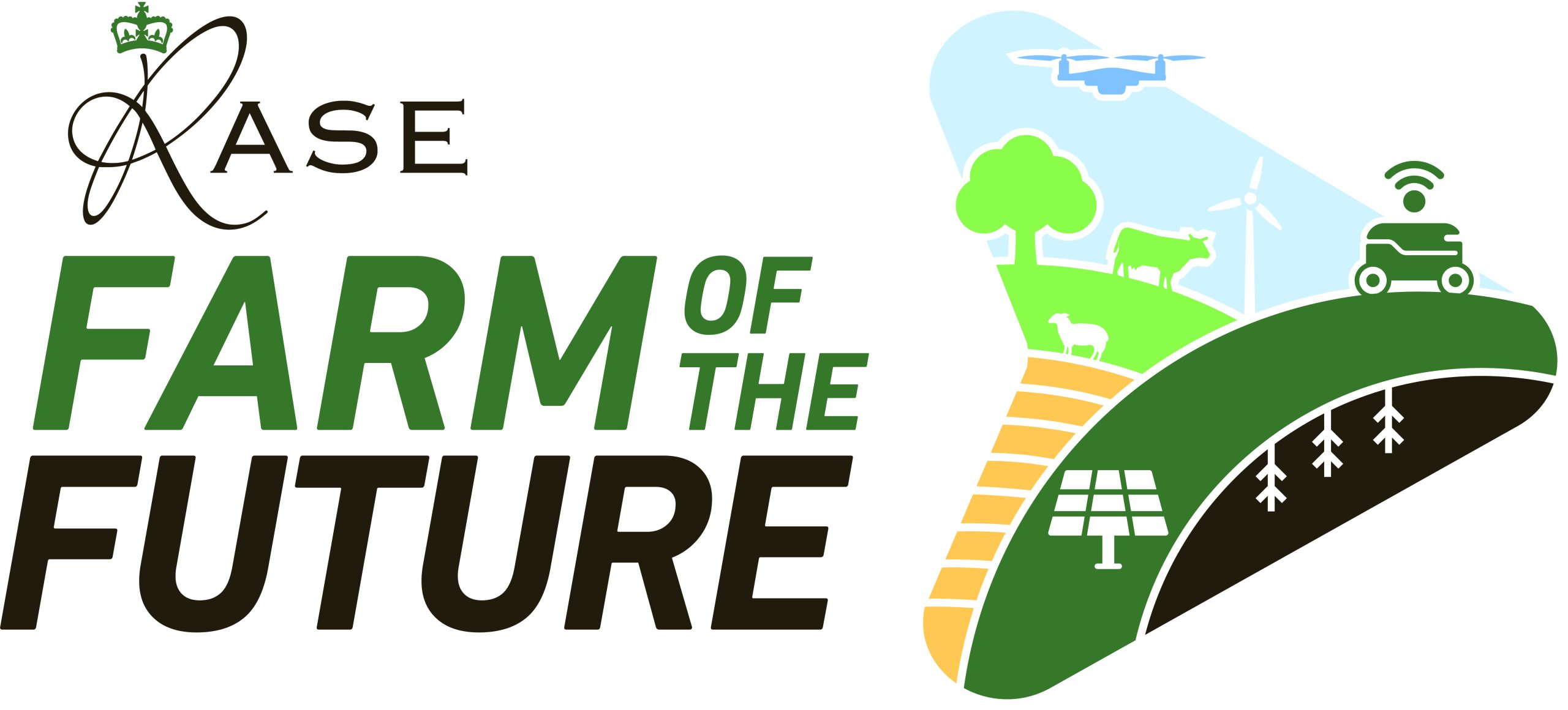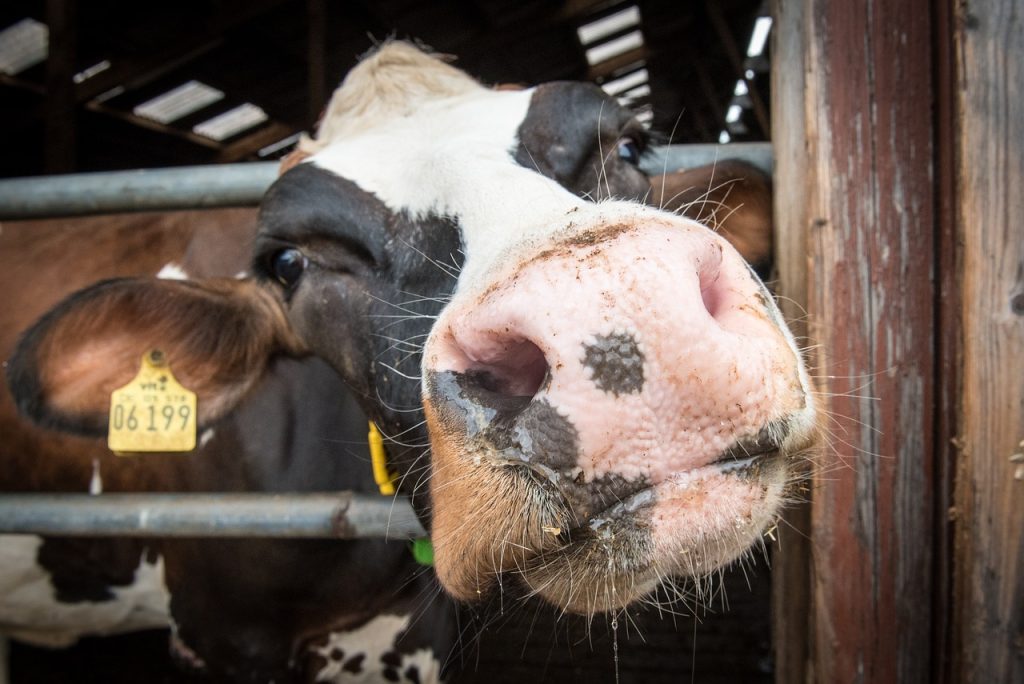Methane inhibitors fed as part of a ruminant’s ration can reduce the quantity of methane produced in the rumen and emitted by the animal. This can reduce the overall emissions associated with meat and milk production.
A recent Farm of the Future webinar brought together Annie Williams from the UK Agri-Tech Centre, Philip Ingram from Cargill, Adrian Packington representing DSM-Firmenich and Stephen Kenyon from Harbro. The speakers discussed what methane inhibitors are, why there is such a high level of interest in them and the specifics of some of the products available.
What are methane inhibitors?
Methane inhibitors are feed supplements that reduce emissions by inhibiting enteric methane reduction from ruminants.
While providing an overview of what methane inhibitors, Annie Williams highlighted that they are just one of the tools available to farmers to reduce emissions from ruminants, alongside focusing on genetics, health, waste, manure management, feed, land management and efficiency.
It’s also important to note that methane inhibitors do not provide a one-size-fits all approach. Reported emissions reductions vary widely between products, systems and different ways of applying, which can make it challenging to identify products which can be effective in a number of farming systems.
Why use methane inhibitors?
Before diving into the challenges, it is essential to acknowledge that the UK is making progress in reducing emissions from livestock. Taking dairy as an example, on a global level dairy contributes 3.4% of total emissions, but the carbon footprint of milk produced in the UK sits at 43% of the global average.
Looking at a breakdown of UK dairy emissions, 43% come from the production of methane via enteric fermentation in the rumen. This is why there is currently such a focus on methane inhibitors, as they have the potential to make a real difference.
What options are available to farmers?
Silvair, Bovaer and Rumi-Tech are all methane inhibitor products that are currently available to farmers in the UK. There are several differences between them, in terms of efficacy, cost, how they can be used and whether or not they have additional benefits.
Silvair
Silvair can reduce methane by around 10%, with no impact on milk production. It works by redirecting the hydrogen in the rumen that would otherwise go into the production of methane and puts it to another use. It is nitrate contained in Silvair which reacts with hydrogen in the rumen to produce ammonia, which microbes in the rumen then convert to protein, enabling a more energy efficient method of hydrogen removal.
Silvair is ideally fed through compound feed or a blend on farm. When introducing Silvair, support from a nutritionist will be needed to rebalance the ration, because it contains quite a lot of crude protein and calcium.
Silvair at a glance
- When Silvair is fed at its recommended rate there is a 10% reduction in methane
- There are more than 30 peer reviewed trials of Silvair across dairy cows, beef, sheep and goats
- It has been included in some carbon footprinting tools including Agrecalc and Intellync
- In most diets Silvair costs 10 – 15 pence/head/day, or in terms of milk yield it costs 0.4 – 0.7 pence/litre
Bovaer
Bovaer is a feed supplement that reduces enteric methane production in dairy cows. It is approved in the UK and the EU as a methane inhibitor feed additive and is currently the only such product in that functional group.
On average, Bovaer reduces methane by about 30%. It works by blocking a specific enzyme in the microbes which carry out methane production. The target enzyme is unique to the microbes, so it is the enzyme that is targeted, not the cow itself. It does not kill the microbes and is broken down in the rumen with no meat or milk residues. It works within 30 minutes.
Bovaer at a glance
- It reduces methane by about 30% in dairy cows
- More than 80 peer reviewed papers have been published
- No evidence of reduced efficacy has been found in long term studies lasting more than one year
- Bovaer costs £70 per cow per year, which works out at approximately 0.8 pence/litre milk production. Farmers are not footing the bill, as the processors or retailers are incentivising its use
- Bovaer is the only product specifically approved for methane reduction
RumiTech
RumiTech is a blend of botanical extracts and essential oils which modulate and affect the rumen microbial populations. The scientific data demonstrates that as well as reducing methane emissions there are also improvements in feed efficiency and animal production in terms of milk yield and liveweight gain.
Harbro has been working with the product for 15 years, principally for the performance benefits, and has fed over 1 million animals in the UK during that time period. It can be used in dairy, beef and sheep systems and is being used in compound feeds, blends, minerals and is now also available in a bolus. There is also an organic-approved version of the product.
A meta-analysis conducted in 2020 concluded that when fed at 1g/head/day farmers can see a 3.7% improvement in milk yield, a 4.5% improvement in feed efficiency and 12.9% reduction in methane emissions. Data beef in beef shows similar results of 10 – 15% reduction in methane production along with performance benefits.
RumiTech at a glance
- Data suggests a 10 – 15 % reduction in methane production per kg of feed dry matter
- RumiTech has had Carbon Trust validation since 2017
- It can be used in dairy, beef and sheep
- Some carbon footprinting models allow for inclusion of RumiTech, including E-CO2 and Intellync
- RumiTech costs 4 – 6 pence/head/day for dairy, and performance benefits typically give farmers a return of anything between 10 – 15 to 1, based on current milk prices
Developments in methane inhibitors
In the UK there is a broad range of ruminant farming systems. While there are definitely already methane inhibitor options that are effective for fully housed, TMR-fed herds, the options for tackling methane emissions from outdoor systems, those that are grazing for part of the year and those that are fed in-parlour cake are more limited. The UK Agri-Tech Centre is working on research in this area. There are also several additional options being considered, including 3-NOP, nitrates, essential oils, probiotics, yeasts, seaweed, saponins, Monensin, synthetic compounds and other naturally occurring compounds that might inhibit methane production in the rumen.
The UK Agri-Tech Centre is also involved in ‘Dancing with Daffodils’. This 48-month collaborative project is aiming to develop a UK-based supply chain for a methane-reducing additive for ruminants which is found in daffodils. They will also be looking at other parameters such as performance and nitrate use efficiency to ensure the product has other benefits.
In summary, methane inhibitors reduce methane emissions from ruminants. The products available to farmers vary in effectiveness, cost, and delivery methods, offering different benefits for farmers aiming to reduce emissions while maintaining livestock performance. Ongoing research is exploring new methane inhibitors, such as a daffodil-derived additive, to provide more options for various farming systems, including grazing operations.
To hear more from the speakers, login to the members’ section of the website to watch the webinar in full. Not a member yet? Find out about our membership categories here and how to join the membership here.

